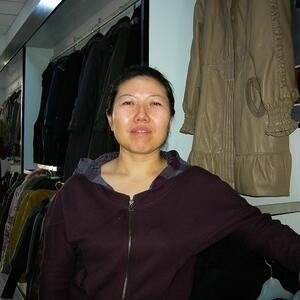 The reemergence of private business after three decades of condemnation was one of the most dramatic developments in the Deng Xiaoping era. UC Berkeley sociologist Thomas Gold was a student in Shanghai as the reforms began to take hold in 1979 and since then has carried out extensive research into policies toward business and the strategies businesspeople have employed. Private business is a key part of China’s transformation, with the largest firms employing tens of thousands of people. Far more common, however, are small-scale entrepreneurs. In his March 11, 2010 talk at USC, Gold discussed the motivation for the Chinese government to permit the rise of business, the role these businesses have played in promoting social stability by giving “waiting for work” young people jobs and in providing a route out of poverty for many. The focus of the talk, though, is on the continuing difficulty many of China’s poorest people have in securing the capital they need to launch businesses. Gold, who has
The reemergence of private business after three decades of condemnation was one of the most dramatic developments in the Deng Xiaoping era. UC Berkeley sociologist Thomas Gold was a student in Shanghai as the reforms began to take hold in 1979 and since then has carried out extensive research into policies toward business and the strategies businesspeople have employed. Private business is a key part of China’s transformation, with the largest firms employing tens of thousands of people. Far more common, however, are small-scale entrepreneurs. In his March 11, 2010 talk at USC, Gold discussed the motivation for the Chinese government to permit the rise of business, the role these businesses have played in promoting social stability by giving “waiting for work” young people jobs and in providing a route out of poverty for many. The focus of the talk, though, is on the continuing difficulty many of China’s poorest people have in securing the capital they need to launch businesses. Gold, who has  served on the board of a number of non-profit organizations and who teaches about non-governmental organizations, describes how a San Francisco-based non-profit Wokai 我开 (I start [an enterprise]) takes donations from Americans and others and works with two Inner Mongolia and Sichuan-based GONGOs (government-organized non-governmental organizations) which lend seed capital to individuals to start businesses ranging from animal husbandry to retail. Through the Wokai website, donors can track the progress the loan recipients make and can also link up with others who share their interest in supporting these entrepreneurs.
served on the board of a number of non-profit organizations and who teaches about non-governmental organizations, describes how a San Francisco-based non-profit Wokai 我开 (I start [an enterprise]) takes donations from Americans and others and works with two Inner Mongolia and Sichuan-based GONGOs (government-organized non-governmental organizations) which lend seed capital to individuals to start businesses ranging from animal husbandry to retail. Through the Wokai website, donors can track the progress the loan recipients make and can also link up with others who share their interest in supporting these entrepreneurs.
This video is also available on the USCI YouTube Channel.
Click on the play button above to see Tom Gold's presentation.
Thomas Gold is professor of sociology at UC Berkeley and a member of the USC US-China Institute board of scholars. He’s the executive director of the Inter-University Program for Chinese Language Studies at Tsinghua University. He previously served as chair of Berkeley’s Center for Chinese Studies and the Berkeley China Initiative. Prof. Gold’s current work focuses on entrepreneurship, network building, and the ramifications of both for Chinese civil society. He’s also known for his work on the Taiwan economic miracle (State and Society in the Taiwan Miracle, 1986) and is currently working on Remaking Taiwan: Society and the State Since The End of Martial Law. He’s the author of numerous book chapters and journal articles. His co-edited books include Laid-Off Workers in a Workers’ State: Unemployment With Chinese Characteristics (2009), Social Connections in China: Institutions, Culture, and the Nature of Guanxi (2002), and New Entrepreneurs of Europe and Asia: Patterns of Business Development in Russia, Eastern Europe and China (2001).
Related story: USC US-China Today touched on this subject in a March 2009 article.
http://www.uschina.usc.edu/article@usct?a_hand_up_microfinance_in_china_13271.aspx




